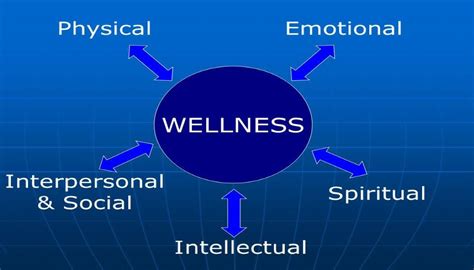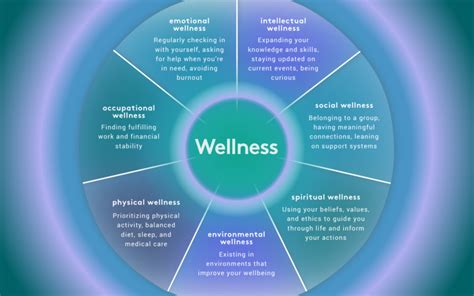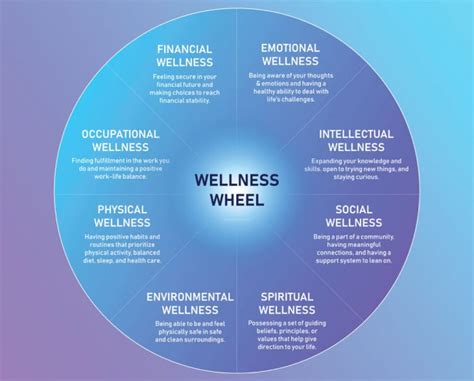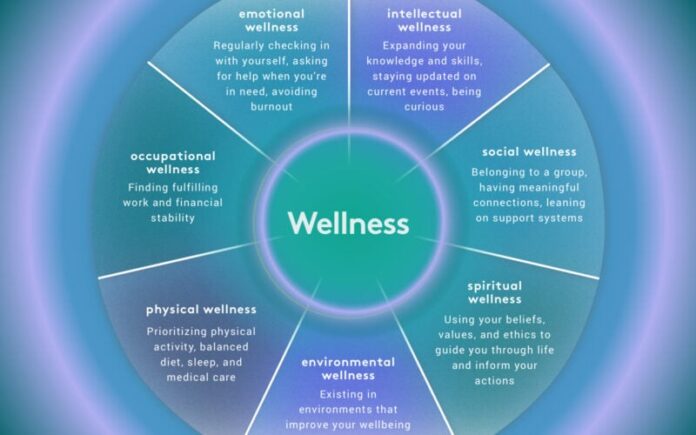In today’s fast-paced work environment, mental wellness plays a crucial role in achieving career success and personal growth. Understanding how to manage stress, maintain a healthy work-life balance, and foster resilience can significantly enhance your professional journey. This article explores essential tips for boosting your career through mental wellness, including practical techniques for stress management, the benefits of mindfulness and meditation, and strategies for effective communication. By integrating self-care practices and seeking professional support, you can build a solid foundation for career advancement while nurturing your mental health. Discover how prioritizing mental wellness can lead to a more fulfilling and successful career.
Join terylblog.com for an in-depth exploration of this topic.
1. The Importance of Mental Health in Career Success
A strong mental health foundation is essential for career success, impacting both professional performance and overall job satisfaction. Prioritizing mental well-being empowers individuals to effectively manage work pressures and demands. Positive mental health enhances cognitive functions like concentration, decision-making, and problem-solving, vital for career advancement. Furthermore, it fosters increased motivation and productivity, enabling employees to reach their goals more efficiently.
Conversely, poor mental health can negatively impact individuals and organizations. It can result in burnout, decreased efficiency, and increased absenteeism, ultimately hindering career advancement and fueling job dissatisfaction. To mitigate these consequences, organizations and individuals must prioritize mental well-being. By cultivating a supportive work environment and proactively addressing mental health concerns, we can create a more resilient and engaged workforce. Embracing mental wellness not only enhances individual career outcomes but also fosters a more positive and productive workplace culture, ultimately contributing to long-term professional success.

2. Recognizing and Managing Workplace Stress
Recognizing and managing workplace stress is crucial for maintaining mental well-being and improving career performance. Stress can manifest physically through headaches, fatigue, or sleep disturbances, and can also affect mood, causing irritability or anxiety. Early identification of stress signals is key to preventing its escalation and potential impact on job performance.
Managing stress effectively begins with identifying its sources. Common stressors include demanding workloads, tight deadlines, and interpersonal conflicts. Addressing these stressors involves implementing practical strategies such as effective time management, setting realistic goals, and prioritizing tasks. Furthermore, incorporating healthy coping mechanisms like deep breathing exercises, regular physical activity, and taking breaks can significantly help mitigate stress.
A supportive work environment is key to managing stress. Employers can play a vital role by promoting open communication, offering mental health resources, and cultivating a culture that prioritizes work-life balance. By proactively addressing stress and implementing effective management strategies, individuals can safeguard their mental well-being, improve their productivity, and contribute meaningfully to their professional development.

3. Techniques for Maintaining Work-Life Balance
A healthy work-life balance is crucial for both mental well-being and career success. One effective strategy is establishing clear boundaries between work and personal life. By setting specific times for work and leisure activities, and avoiding the encroachment of work into personal time, you can prevent burnout. This separation ensures that both work and personal commitments receive the attention they deserve.
Prioritizing time management is another crucial strategy. Employing tools such as calendars and to-do lists to organize tasks and establish realistic deadlines can greatly enhance efficiency. This approach effectively manages workload and minimizes the risk of overcommitment. Furthermore, incorporating regular breaks throughout the workday can revitalize your mind and boost productivity.
Making time for hobbies and strengthening relationships with family and friends is vital for restoring energy and living a balanced life. Prioritize activities that bring you joy and relaxation. By integrating these practices, you can achieve a harmonious balance between work and personal life, ultimately leading to greater fulfillment and success in both spheres.

6. Building Resilience for Career Advancement
Resilience is crucial for career success. It empowers individuals to navigate workplace challenges, setbacks, and change with strength and adaptability. Resilient individuals maintain a positive outlook, even during adversity, and view difficulties as opportunities for growth, rather than obstacles that hinder progress.
Building resilience is significantly enhanced by cultivating a robust support network, encompassing both professional and personal connections. Engaging with mentors, colleagues, and friends who provide guidance, encouragement, and fresh perspectives during challenging periods can play a crucial role in maintaining your equilibrium and unwavering focus on your objectives.
Developing a growth mindset is crucial for resilience. Embrace challenges as opportunities for learning and growth, and be receptive to feedback and self-improvement. This approach not only strengthens your ability to overcome adversity but also establishes you as a proactive and adaptable professional.
Furthermore, incorporating self-care and stress management practices, including mindfulness and exercise, can bolster your mental and physical health, ultimately enhancing your resilience over time. Cultivating resilience is crucial for sustained professional achievement and personal growth.
7. Accessing Professional Support and Resources
Professional support and resources are vital for maintaining mental well-being and driving career success. In today’s high-pressure workplaces, seeking help is a sign of strength, not weakness. Many companies provide Employee Assistance Programs (EAPs), offering confidential counseling and support for a range of mental health concerns, such as stress, anxiety, and burnout. Utilizing these resources enables you to address challenges proactively, preventing them from escalating and allowing you to remain focused and productive.
Professional development opportunities, such as workshops, seminars, and training programs, are crucial in promoting mental well-being. These resources not only sharpen your skills, but also provide a sense of accomplishment and purpose, contributing to a more positive outlook on life.
Beyond the resources available at work, consider reaching out to external professionals like therapists, career coaches, or support groups. These individuals can provide tailored guidance and tools to help you navigate your career journey while prioritizing your mental well-being. Proactively seeking support and utilizing available resources can empower you to effectively manage stress, enhance your mental health, and build a solid foundation for long-term career achievement.
8. Incorporating Self-Care Practices into Your Daily Routine
Maintaining mental wellness and career success hinges on incorporating self-care practices into your daily routine. Self-care is about prioritizing activities that nourish your mind and body, ensuring you remain balanced and energized. Begin by discovering what brings you joy and relaxation, whether it’s exercise, reading, pursuing hobbies, or spending quality time with loved ones.
Dedicating even a short time each day to these activities can make a big difference in your overall well-being. It’s also essential to prioritize your physical health. Getting enough sleep, eating nutritious meals, and staying hydrated are all key to supporting both your mental and physical energy.
Integrating mindfulness practices, like meditation or deep breathing exercises, into your daily routine can effectively reduce stress and sharpen your focus. Regular self-reflection, through journaling or quiet contemplation, provides an opportunity to assess your mental well-being and make necessary adjustments. Prioritizing self-care establishes a solid foundation for personal growth and career advancement, ultimately leading to long-term success and fulfillment.
Prioritizing mental wellness is key to personal and professional growth. By managing stress, maintaining work-life balance, practicing mindfulness, and accessing support, you can build resilience and sustain career success. Incorporating self-care into your daily routine strengthens your ability to thrive in the workplace, ensuring long-term fulfillment and achievement in your career journey.
terylblog.com
